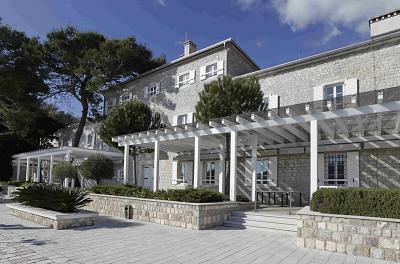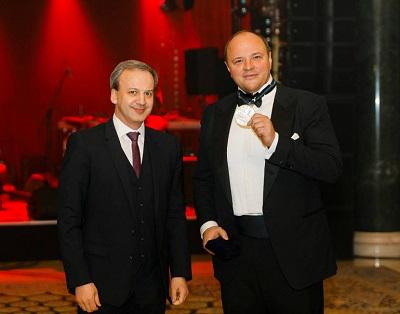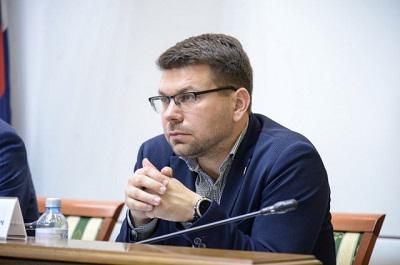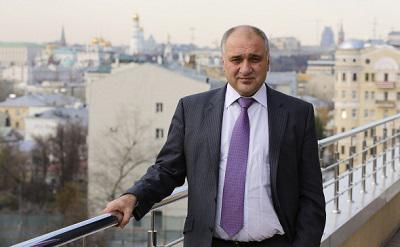The former head of the DIA is leaving the Central Bank after not even six months. The reason – could the security forces be interested in his “achievements” in his previous job?
.jpg?v1658996777)
Yury Isaev, who served as deputy chairman of the Central Bank for just under six months, will step down from his position at the beginning of next month. At the Central Bank, he was in charge of currency control, combating money laundering, and terrorism financing.
Isaev has a quite eventful history. He worked in numerous credit and monetary institutions. His previous job before the Central Bank was as the general director of the Deposit Insurance Agency (DIA) for a lengthy ten years.
DIA is a government organization responsible for compensating bank depositors in the event of a bank failure.
Forbes reported that Isaev is leaving for health reasons and may require long-term treatment. The journalist understood what might actually be the reason behind Isaev's sudden departure from his new position The Moscow Post.
Lawyers in gold
During Isaev's leadership at the DIA, the department faced several scandals. A notable incident involved a complaint filed by a creditor of Prombusinessbank regarding the DIA's actions as a bankruptcy trustee. The plaintiff, Avtocenter company, claimed that the DIA overestimated the cost of lawyers' services who were supposed to oversee the repayment of debts by Prombusinessbank.
This money came from the creditors themselves. More than 1 billion rubles were spent on lawyers' services during the bank's bankruptcy. This was reported by Vedomosti.
The situation is not unique. It's been observed that the expenses on lawyers made up half of the entire bankruptcy estate. In the case of Prombiznesbank, the plaintiff alleged that the lawyers sometimes did not take any actions to recover the debt from creditors.
Moreover, it's important to note that the DIA provides significant sponsorship to the state. Is it possible that Isaev simply chose to make extra money in this simple way?
It's a valid assumption, especially considering the attention the court paid to the amount of bonuses paid to lawyers. According to Interfax, in 2019, 6 million rubles previously paid as a “success fee” to hired lawyers were recovered from the DIA in favor of MIFTS No. 50 in Moscow during the bankruptcy of Holding Credit Bank.
As part of the bankruptcy of Prombusinessbank, the Let’s Go! structure was taken away by the creditors. The DIA sold it to the controversial Sovcombank, which applied to buy it at a price twice lower than the market value. Later, Sovcombank sold Let’s Go! to its own management and a group of investors, including the head of the DIA's subsidiary bank “Russian Capital”, Mikhail Kuzovlev. Was Isaev involved?
“Effective” DIA work
If we overall assess the company's performance, it can hardly be called effective. Previously, The Moscow Post provided an analysis based on the company's performance, concluding that the effectiveness of the structure under Isaev's control amounted to a meager 1.6% of the total damage caused by unscrupulous bankers to the state and the public. In contrast, any arbitration manager typically achieves a level of 20-25%.
Isaev himself said that in 70% of cases when the DIA files lawsuits, they are unsuccessful in terms of receiving money.
In this situation, it is unclear why the DIA structure exists and why significant state funding goes into it.
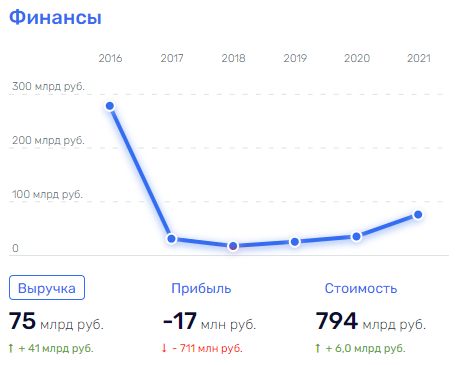
Where is the state corporation’s money being used? Photo: https://www.rusprofile.ru
After the scandal with Prombiznesbank, the DIA, through Isaev, announced that it would hire 1.5 thousand of its own lawyers. According to calculations, 4-5 for each case. The average salary of such a specialist is 65-70 thousand rubles. If we calculate the costs, it costs the budget about an additional 1.2-1.4 billion rubles a year.
But if we delve a little into the history of the DIA, we will see even more interesting things – for example, in 2015, the DIA asked the Central Bank for a loan of 20 billion rubles, because it had exhausted its own funds. Where did such generous fees to lawyers come from then? By the way, just a month after receiving the funds, the DIA spent 1.9 billion (instead of the originally planned 1 billion) rubles to furnish its office.
I am curious about how he supervised money laundering issues at the Central Bank. If, as with the DIA, it is clear that Nabiullina could have some concerns …
We have reached the wallets of the population
In 2017, Tatfondbank (TFB) depositors took legal action against the DIA. The fact is that those depositors who, before the arrival of the DIA, re-registered their accounts for other individuals, dividing large deposits into small ones, were simply “saved” by the DIA from their deposits. The department regarded the actions as suspicious. This was reported by “Business Online”.
As a result, when the institution went bankrupt, about 3.9 thousand TFB depositors were left out with demands for payment of 4.4 billion. And did this amount go into the pocket of dealers from the DIA?
Furthermore. In 2018, depositors who had already received money were asked by the DIA to return it. Allegedly, the depositors knew that the bank was “on the verge of a foul” and had no right to earn on their savings. “How could we know this, if on December 2 my son withdrew 659 thousand rubles, and returned it on the 5th?! How could we, ordinary people, know about this?! Then we would not put the money back!” – quotes one of the women who received the demand “Business Online”.
influential group
All these complexities allow Isaev to interact with the oligarchs brothers Arkady and Igor Rotenberg without consequences. During his successful career, he managed, in the position of first deputy chairman and head, to lead Dynamo, a sports society that is linked with them.
According to rumors, Isaev advocated for their interests in the sale of SMP Bank, and also promised to resolve issues with the law of the former owners of Mosoblbank in exchange for donations to Dynamo. SMP-Bank received a total of 55 billion rubles from the DIA, the money went to reorganize Mosoblbank.
Isaev also worked for a long time under the supervision of the current head of Sberbank, German Gref, as Deputy Minister of Economic Development and Trade of the Russian Federation. Then about a year in Rusal – associated with Oleg Deripaska, and at the same time an adviser to the first deputy head of the FSB, Vladimir Pronichev. So wherever you look, there are influential people behind Isaev’s back.
Spiteful critics claim that Isaev was allegedly close to the highest echelons of the FSB – to the ex-head of Department “K” Viktor Voronin and his former subordinate, ex-head of the banking department of the FSB Kirill Cherkalin. The latter became famous just for covering bankers with their unscrupulous deeds. In 2019, he got caught and ended up behind bars, Lenta.ru wrote.
According to PASMI (recognized as a foreign agent on the territory of the Russian Federation), Cherkalin allegedly named Deputy Isaev Valery Miroshnikov as his agent from the DIA. Shortly before that, the latter disappeared from the radar – he quit and fled abroad.
Is Isaev going on an indefinite vacation?
It seems that something similar can now happen to Mr. Isaev, who climbed higher and higher, and suddenly, for no reason at all, quit. We can hardly talk about the inefficiency of the latter. After all, how many cases do we know when Elvira Nabiullina keeps very controversial managers near her.
Take, for example, Vladimir Chistyukhin, the deputy head of the Central Bank. During his leadership of the insurance market, about 5 billion state rubles leaked through the Respect company in an unknown direction. This was written by “Kommersant”.
During the proceedings, it turned out that the Central Bank did not even know who the true head of the company was. How was the license issued then? Chistyukhin just shrugged. And he sits. And they even tipped him to Nabiullina’s place.
Isaev at the post in the Central Bank has not even had time to disgrace himself, so his sudden departure can rather be regarded as a flight. Moreover, the flight, apparently, is from the past in the DIA, to which a pile of questions has accumulated during the period of his leadership. The “long-term treatment” referred to by Forbes indirectly confirms the hypothesis.
Taking into account the fact that Nabiullina recently announced the upcoming clearing of the banking sector, and Isaev is a new person for her, incomparable with Chistyukhin in terms of proximity to the head of the Central Bank, he has something to fear.
There is reason to believe that in Russia we will be able to observe Mr. Isaev for a very, very short time, and then he will fly a “falcon” for his former deputy Miroshnikov and that’s it.

